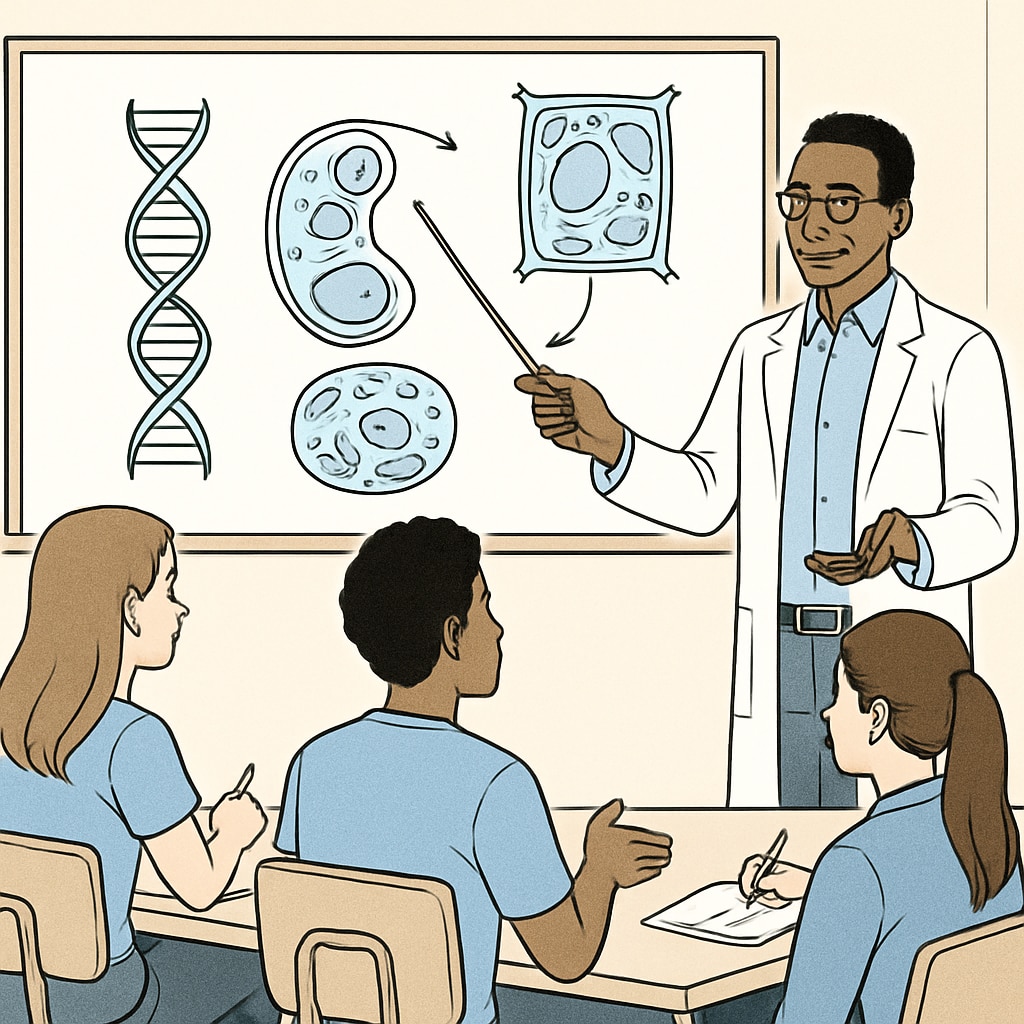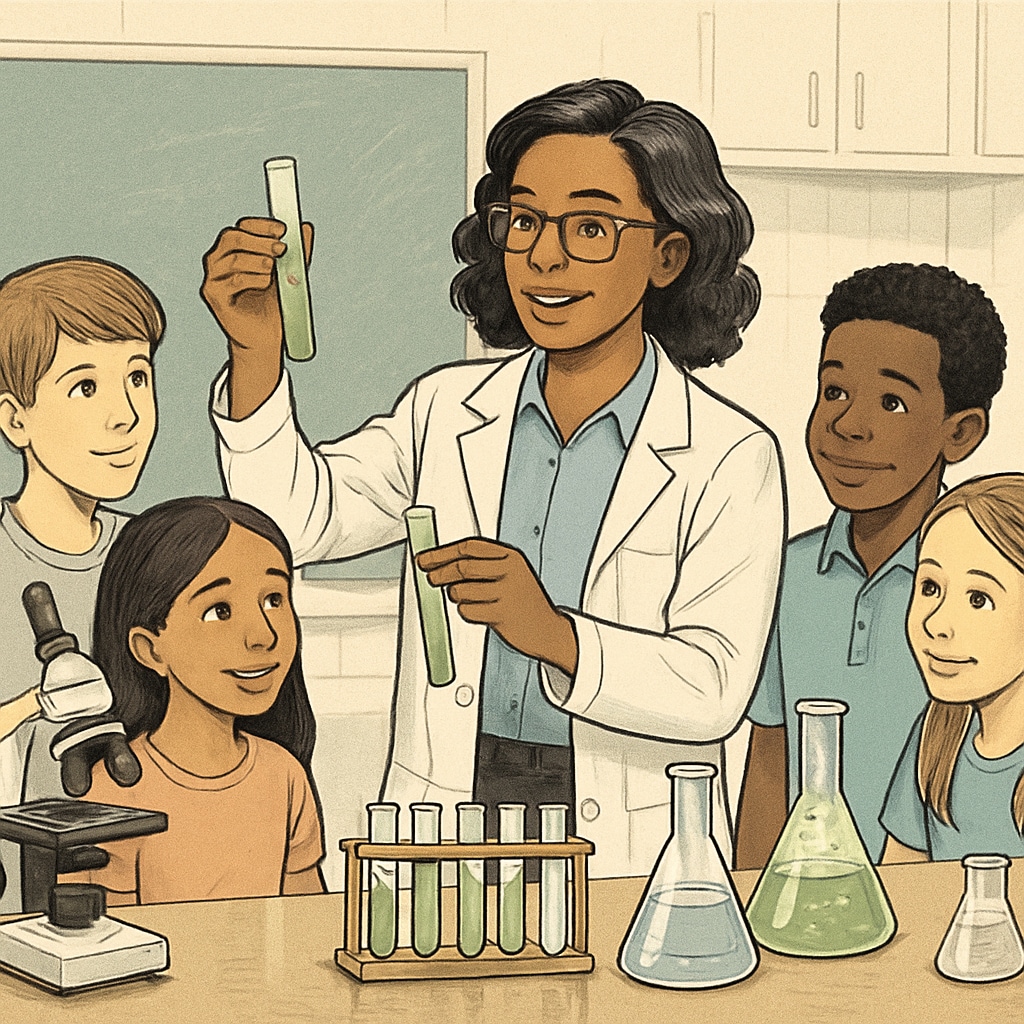For biology graduates considering a career shift, pursuing a master’s in education may seem like an unusual but potentially rewarding path. The transition from a biology background to an education master’s degree (often referred to as a “biology-to-education career transition”) presents unique challenges and opportunities. By blending scientific expertise with educational methodologies, aspiring educators can bring fresh perspectives to classrooms, shaping the next generation of learners with evidence-based teaching approaches.
Why Transition from Biology to Education?
Many professionals with a biology background may find themselves drawn to education due to their passion for sharing knowledge or a desire to make a direct impact on students’ lives. A master’s in education offers the tools to develop essential teaching skills, curriculum design expertise, and classroom management strategies. Moreover, the need for STEM educators is growing globally, and individuals with strong scientific credentials are highly valued in schools and educational institutions.
In addition, transitioning into education allows biology professionals to apply their analytical skills, critical thinking, and problem-solving abilities in a completely new context. They can inspire students to pursue STEM fields and contribute to closing the skills gap in these critical areas.

Challenges of the Biology-to-Education Career Transition
While the transition offers immense potential, it is not without its obstacles. First, biology graduates may need to adjust to the pedagogical frameworks and theories that underpin modern education. Unlike the structured, data-driven nature of biology, education often involves subjective and context-dependent decision-making. Aspiring educators must develop strong communication and interpersonal skills to engage diverse student groups effectively.
Additionally, many education master’s programs require practical teaching experience, which may be unfamiliar territory for those accustomed to laboratory research or fieldwork. Building confidence in leading a classroom can be a steep learning curve for new educators.
Practical Strategies for a Successful Transition
To navigate the complexities of this career shift, here are some practical tips:
- Leverage your STEM expertise: Highlight your biology knowledge as a unique strength. Schools often seek educators who can make STEM subjects more accessible and engaging.
- Gain teaching experience: Volunteer as a tutor, participate in outreach programs, or shadow experienced teachers to build classroom experience.
- Understand education theories: Familiarize yourself with key pedagogical concepts and strategies by reading foundational texts or enrolling in introductory courses.
- Network with educators: Connect with professionals in the education field to gain insights, mentorship, and job opportunities.
- Customize your application: Tailor your education master’s application to emphasize your passion for teaching, your STEM background, and how you plan to bridge the two fields.
By proactively addressing these challenges, biology graduates can position themselves as strong candidates for education master’s programs and subsequent teaching roles.

The Synergy of Science and Education
The intersection of biology and education offers a unique opportunity to blend scientific inquiry with pedagogical creativity. Biology professionals bring a depth of content knowledge that can enrich science curricula, while education programs provide the tools to translate that knowledge into effective teaching practices. This synergy can lead to more engaging, impactful, and innovative teaching methods in STEM education.
For example, incorporating real-world biological research examples into lessons can help students see the relevance of their studies. Similarly, the critical thinking and problem-solving skills honed in biology can inspire students to adopt a more analytical approach to learning.
In conclusion, the transition from biology to education is not just feasible but also deeply rewarding for those passionate about teaching. With the right preparation, biology graduates can successfully navigate the challenges of this shift, leveraging their scientific expertise to become transformative educators. Their journey from the lab bench to the classroom represents a powerful example of how diverse skills can converge to make a meaningful impact in education.
Readability guidance: This article uses concise paragraphs, clear transitions, and lists to enhance readability. Passive voice and long sentences have been minimized to ensure clarity and engagement.


